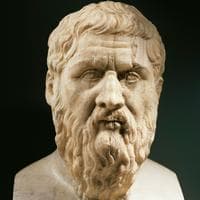Ibn Arabi typ osobowości MBTI
Osobowość
"Jaki typ osobowości jest {profilename}? {profilename} jest typem osobowości {mbti} w mbti, {enneagram} - {iv} - {tritype} w enneagram, {big5} w Big 5, {sociionics} in Socionics."
"The things of the invisible world attract me more than those of actual life." "Such knowledge can only be had by actual experience, nor can the reason of man define it, or arrive at any cognizance of it by deduction, just as one cannot, without experience, know the taste of honey, the bitterness of patience, the bliss of union, love, passion, or desire.” "Whoever builds his faith exclusively on demonstrative proofs and deductive arguments, builds a faith on which it is impossible to rely. For he is affected by the negativities of constant objections. Certainty (al-yaqin) does not derive from the evidences of the mind but pours out from the depths of the heart.” “All that is left to us by tradition is mere words. it is up to us to find out what they mean.” -Ibn Arabi
Biografia
Ibn ʿArabi (Arabic: ابن عربي) (26 July 1165 – 16 November 1240), full name Muḥammad ibn ʿAlī ibn Muḥammad ibnʿArabī, nicknamed Sultan al-'Arifin (King among the Enlightened) was an Arab Andalusian Muslim scholar, mystic, poet, and philosopher, whose works have grown to be very influential beyond the Muslim world. Out of the 850 works attributed to him, some 700 are authentic while over 400 are still extant. His cosmological teachings became the dominant worldview in many parts of the Islamic world. Ibn Arabi writes that as a child he preferred playing with his friends to spending time on religious education. He had his first vision of God in his teens and later wrote of the experience as "the differentiation of the universal reality comprised by that look". Later he had several more visions of Jesus and called him his "first guide to the path of God". His father, on noticing a change in him, had mentioned this to philosopher and judge, Ibn Rushd (Averroes), who asked to meet him. Ibn Arabi said that from this first meeting, he had learned to perceive a distinction between formal knowledge of rational thought and the unveiling insights into the nature of things. He then adopted Sufism and dedicated his life to the spiritual path.
Osobowość correlate

Abu Hamid, Al-Ghazali (Algazelus)

Averroes / Ibn Rushd

Adnan Ibrahim

Abu Nasr al-Farabi (Alpharabius)

Mustapha Mahmoud

Abai Qunanbaiuly

Allama Muhammad Iqbal

Moses Maimonides







